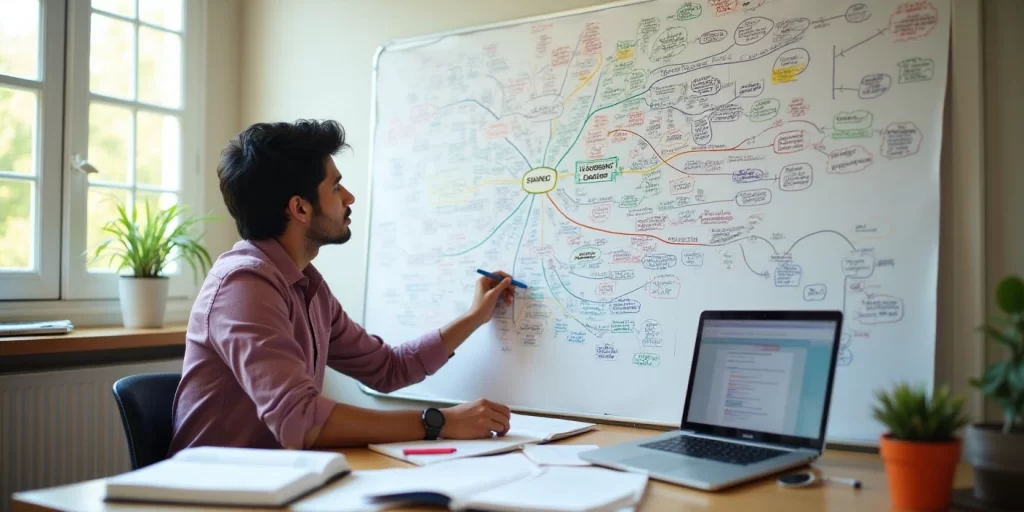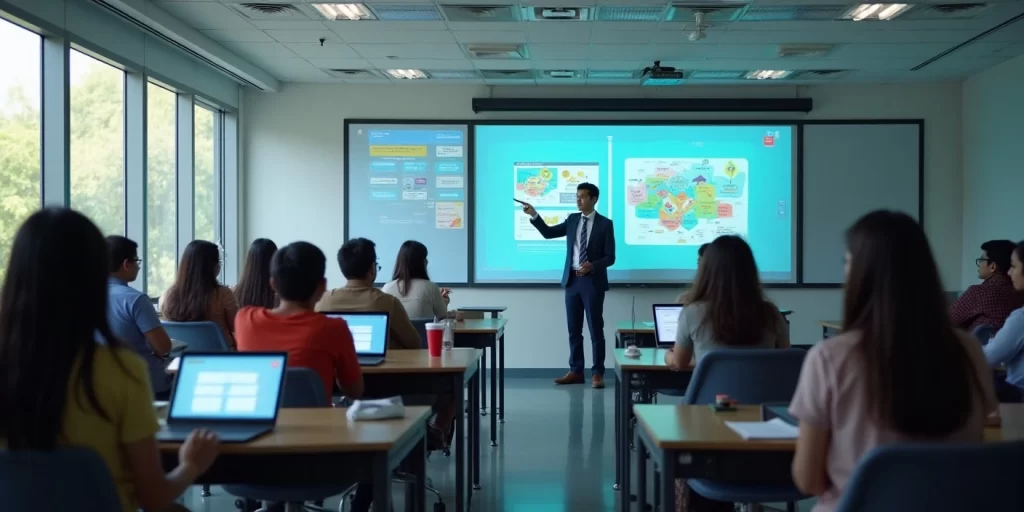Study Techniques for Engineering Students
Study techniques for engineering students are essential for surviving and excelling in an intense academic environment. Every aspiring engineer must equip themselves with solid strategies to manage dense syllabi, frequent assessments, and challenging concepts. Without effective study techniques for engineering students, it’s easy to get overwhelmed, fall behind, or lose motivation.
At M. Kumarasamy College of Engineering (MKCE), students are encouraged to explore, adopt, and refine the most productive study techniques for engineering students that align with their personal learning styles. From peer learning to digital tools, from time blocking to active recall, MKCE provides the environment and resources necessary for mastering these skills.
The competitive world of engineering demands not just hard work but smart work. This is why MKCE integrates proven study techniques for engineering students into its academic support systems. Whether you’re preparing for exams, working on a capstone project, or balancing internships, you’ll need reliable methods that enhance retention, productivity, and problem-solving.
In this blog, we will break down the top 10 study techniques for engineering students and how MKCE enables students to apply them in real academic settings.

Why Engineering Needs Smarter Study Approaches
Engineering programs are rigorous and multidisciplinary. Students must tackle mathematics, physics, coding, design, and real-world applications. Traditional rote learning simply doesn’t cut it anymore.
Here’s why you need strong study techniques for engineering students:
- Large volumes of complex content across subjects
- Application-oriented learning with high problem-solving demands
- Continuous internal assessments and project-based evaluations
- Competitive placement processes that reward clarity and innovation
With the right study techniques for engineering students, learners can manage their academic stress, retain more information, and improve overall performance.
How MKCE Supports Effective Learning Strategies
MKCE offers not just education, but a holistic learning ecosystem that actively promotes the best study techniques for engineering students through:
- Smart Classrooms with interactive content and video-based modules
- Peer Study Groups for collaborative and cooperative learning
- Faculty Mentorship programs that guide students on academic planning
- Digital Resource Centers with access to NPTEL, Coursera, and more
- Tutorial Sessions and Doubt Clarification Corners to reinforce concepts

Top 10 Study Techniques for Engineering Students – Adopted at MKCE
Here’s a deep dive into the most effective study techniques for engineering students, many of which are widely practiced and supported at MKCE:
1. Pomodoro Technique for Focused Learning
One of the most effective study techniques for engineering students is the Pomodoro Technique. Study for 25 minutes, take a 5-minute break, and repeat. This trains the brain to focus better and avoid burnout. MKCE libraries and study lounges offer quiet zones perfect for timed sessions.
2. Active Recall and Spaced Repetition
Instead of rereading notes, quiz yourself. Use flashcards or apps like Anki. Schedule reviews at increasing intervals to boost memory. Many MKCE faculty members incorporate this technique into test prep workshops.
3. Mind Mapping Complex Concepts
Engineering topics can be abstract and layered. Use visual mind maps to connect theories, formulas, and real-world applications. MKCE encourages students to use these during internal reviews and brainstorming sessions.
4. Group Study and Peer Teaching
Explaining a concept to someone else is the best way to learn. MKCE’s mentorship cell encourages seniors to conduct peer classes and coding labs, building a culture of collaborative learning.
5. Practice-Oriented Learning
Theory without application is incomplete in engineering. MKCE integrates lab sessions, workshops, and real-time projects into every semester. This hands-on approach reinforces classroom knowledge.
6. Using Digital Tools and Simulation Software
CAD, MATLAB, AutoCAD, Python simulators—engineering students must be tech-savvy. MKCE provides access to licensed software and teaches students to integrate tools into their studies.
7. Setting Specific Study Goals
“Study Thermodynamics” is vague. “Understand the first law and solve 10 problems” is focused. Students at MKCE are trained to break down topics into achievable chunks with clear deliverables.
8. Teaching Back to Learn
Teach what you’ve learned to your peers or in presentations. MKCE encourages students to create mini-seminars where they teach concepts to the class—improving comprehension and confidence.
9. Study Scheduling with Time Blocking
Dedicate fixed time blocks to subjects, review, and relaxation. MKCE’s time management workshops help students create personalized calendars to balance classes, study, and breaks.
10. Continuous Feedback and Assessment
Regular self-assessment helps track progress. MKCE’s formative evaluation pattern ensures students get early feedback through class tests, online quizzes, and internal viva rounds.

Study Support Resources at MKCE
MKCE empowers students to implement study techniques for engineering students through multiple institutional resources:
- Learning Resource Center (LRC) – A digital hub with eBooks, journals, and tutorials
- Innovation and Research Clubs – Where theory meets innovation
- Subject Matter Experts (SMEs) – Available for remedial coaching and exam prep
- Online Course Certifications – From Coursera, NPTEL, and IITs
- Career Development Centre – Equips students with interview preparation and aptitude building
Smart Work Over Hard Work
Engineering isn’t just about attending lectures and writing exams—it’s about mastering the art of learning. With the right study techniques for engineering students, academic success becomes more achievable and less stressful.
At MKCE, every student is empowered with the tools, guidance, and environment they need to identify the study methods that work best for them. So whether you’re preparing for a semester exam or building a mini project, remember—it’s not about studying more, but studying smart.

Call to Action
Are you ready to learn the smart way? Join MKCE—where modern education meets powerful study strategies and every student is trained for success.